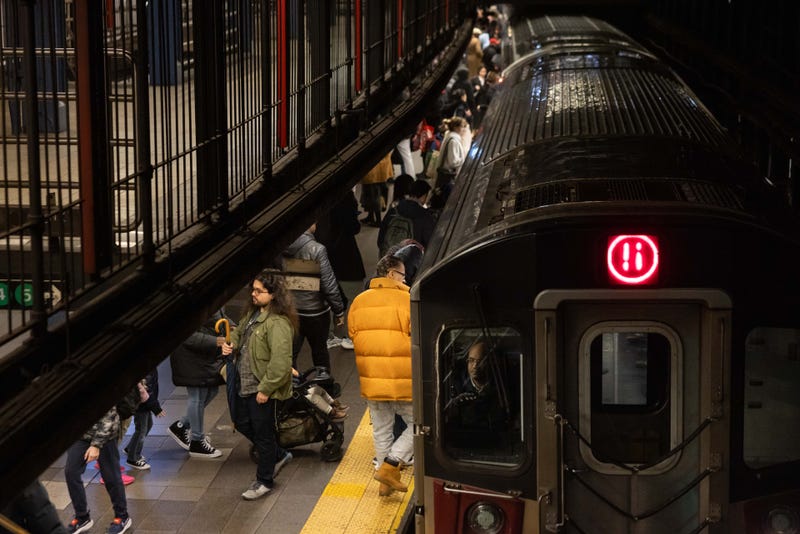
NEW YORK (BLOOMBERG) -- New York City’s transit system faces a potential $432 million budget shortfall this year because the subway, bus and commuter rail operator may need to wait until 2026 to get reimbursed from federal money owed for cleaning costs during the Covid pandemic, according to a report from Thomas DiNapoli, the state’s comptroller.
The Metropolitan Transportation Authority, the largest transit provider in the US, has yet to receive $600 million in Federal Emergency Management Agency funds to cover additional cleaning expenses the MTA paid for during the pandemic. The transit agency included $300 million of FEMA funds in its $20 billion operating budget for 2025, but DiNapoli doesn’t anticipate that MTA will get the federal reimbursement this year. Higher than expected overtime costs will widen the estimated budget deficit to $432 million, according to the report, which DiNapoli released Wednesday.
“FEMA recently reported it will not pay these funds in federal fiscal year 2025, making it unlikely the MTA will receive $300 million budgeted for in 2025,” according to the report.
MTA officials projected a balanced operating budget for this year in its last financial update in July. While the MTA has avoided the steep fare increases and service cuts facing other US mass-transit systems — thanks to additional state and city funding — New York City’s public transportation network still faces heightened federal scrutiny.
US Department of Transportation Secretary Sean Duffy has threatened to withhold money from the MTA citing concerns over subway crime. Several violent and fatal attacks since the pandemic have shocked transit riders, yet major felonies are down 9.4% this year through August compared with the same period in 2019, according to MTA data.
Duffy on Oct. 1 paused $18 billion of federal funding for New York infrastructure projects, including MTA’s expansion of the Second Avenue Subway into Harlem. The USDOT is reviewing whether any awarded funding violated a new rule that barred race- and sex-based contracting requirements, but said it’s unable to conduct the review during the federal government shutdown.
The MTA is focused on cutting operating spending by $500 annually and reducing the amount of riders who skip paying the fare by boarding buses without paying or jumping turnstiles, Jai Patel, the MTA’s chief financial officer, said in an emailed statement.
“We are constantly exploring new ways to find efficiencies wherever possible, and will continue to closely monitor revenue trends, fight fare evasion, and make every effort to boost the funding streams we directly influence,” Patel said.
The MTA is relying on the $600 million of expected FEMA funds for its operating budgets after spending the money during the pandemic to keep its subways and commuter-rail systems clean, Janno Lieber, the MTA’s chief executive officer, said last month during a press conference at Grand Central Terminal. Its July budget update lists the federal disaster aid as a risk to its financial plan.
“We were all very concerned about transmittal during the pandemic and those cleaning efforts, those sanitation efforts were eligible for reimbursement and we are still waiting to get that money from FEMA,” Lieber said.
More stories like this are available on bloomberg.com.
